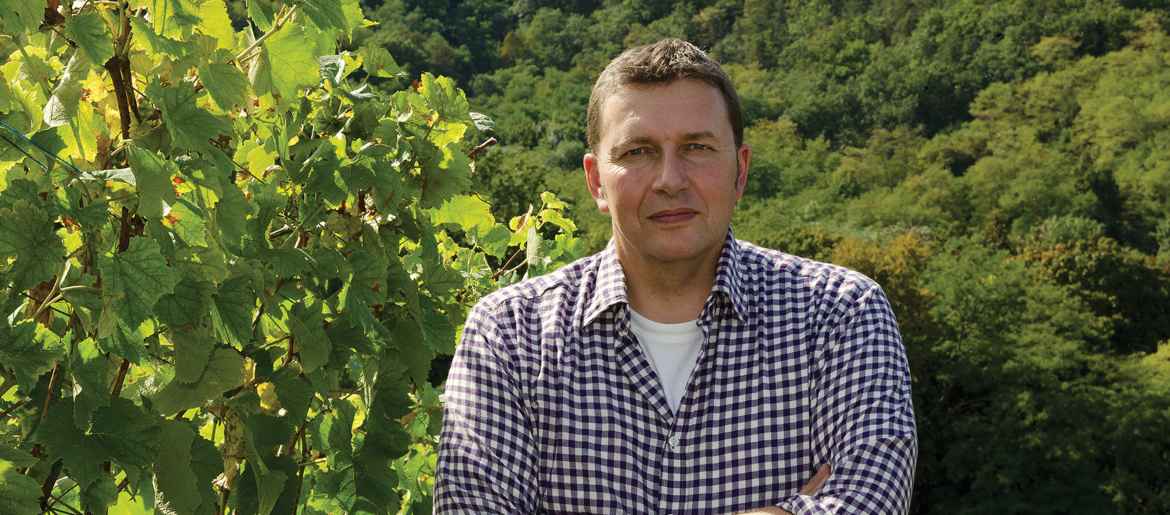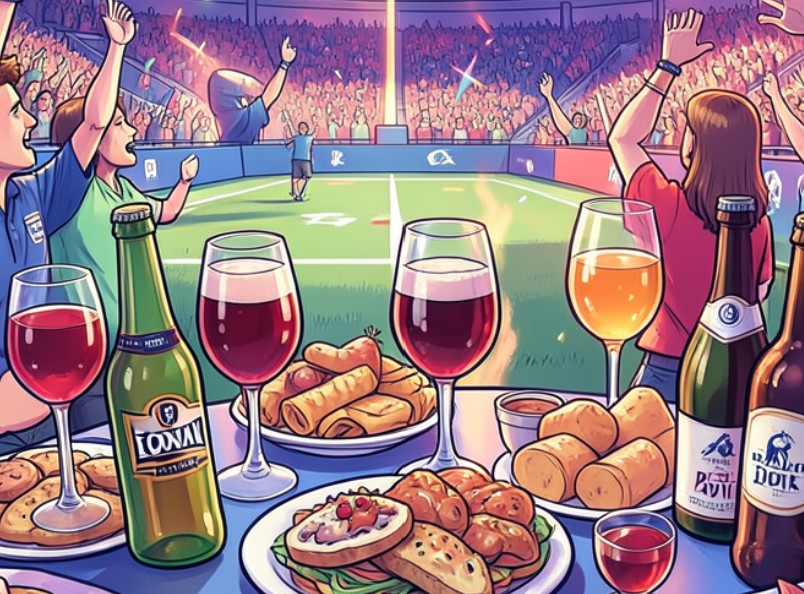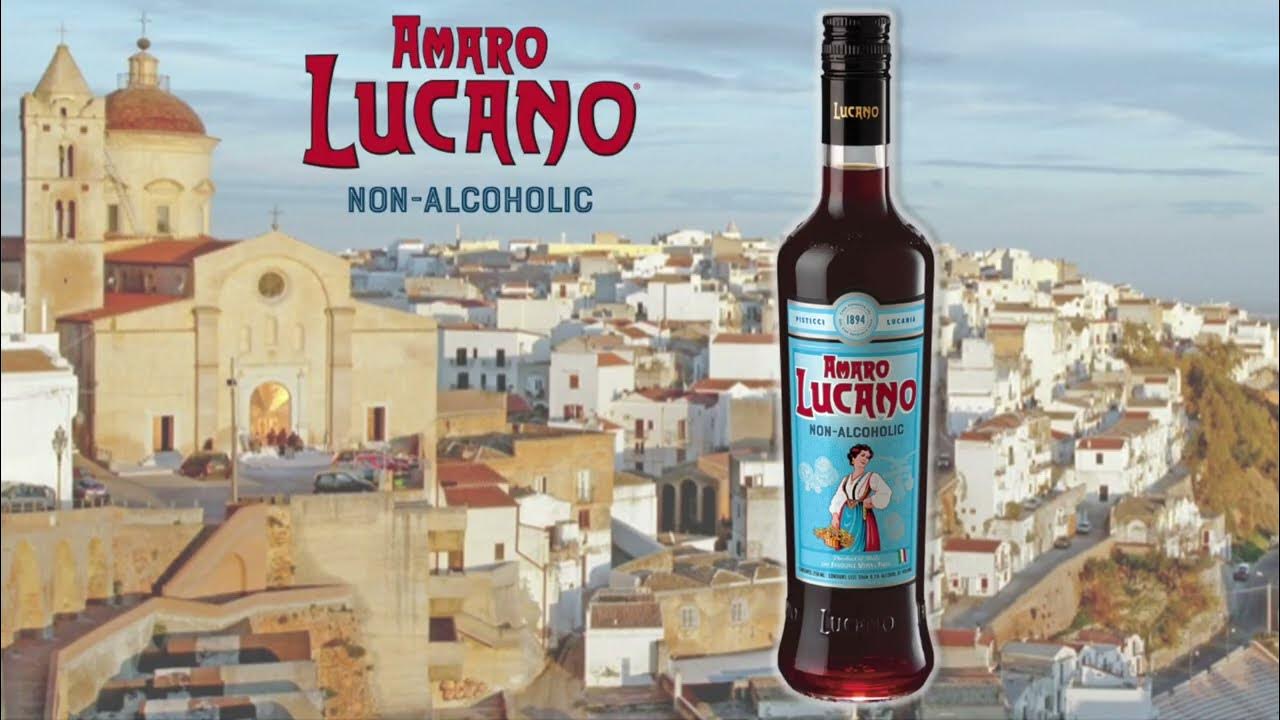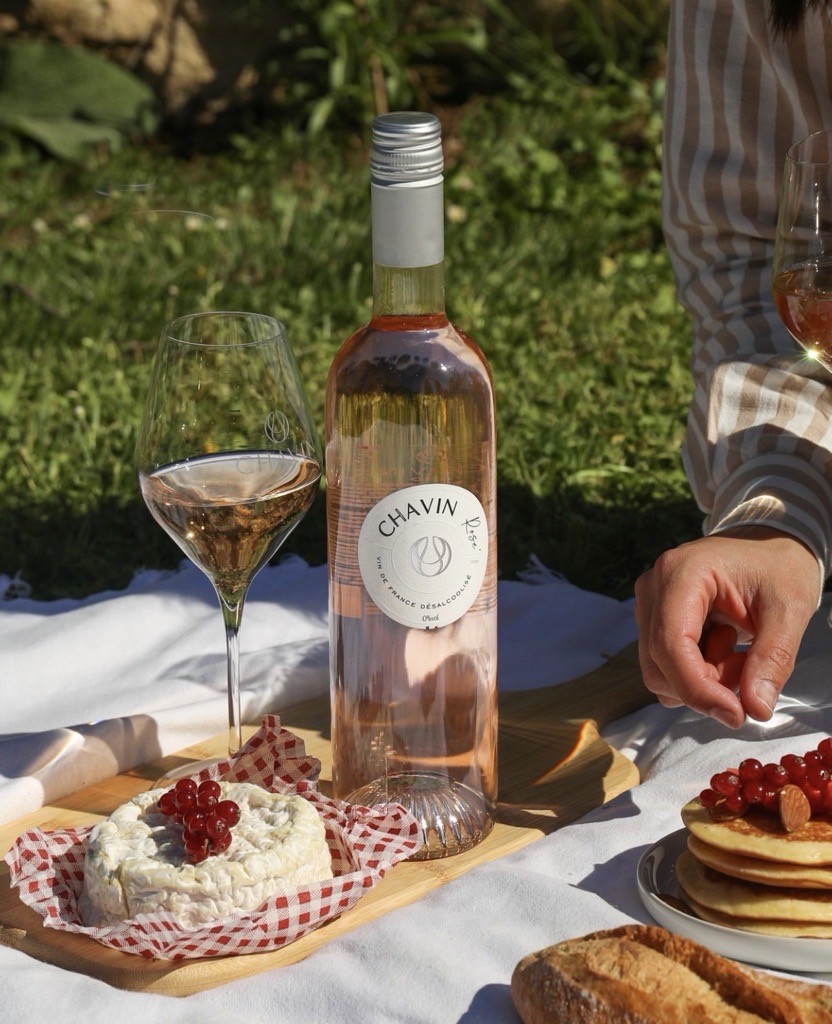Wine Pro Wednesday
Winemaker Edition
Olivier Humbrecht, General Manager of Domaine Zind-Humbrecht, is the second winemaker in the world to attain Master of Wine status. With degrees from the Ecole Supérieure d’Agriculture de Purpan and Université d’Oenologie de Toulouse in Agriculture and Oenology, respectively, Olivier earned his Master of Wine certification in 1989. The same year, he took over winemaking from his father, continuing an unbroken lineage that extends back to the year 1620.
Since 2002, he has served as President of the Syndicat International des Vignerons en Culure Bio-Dynamique/ Biodyvin (SIVCBD). He became President of the Alsace Grand Cru Association in 2011.
1. How or why did you become a winemaker?
It is almost impossible to answer that question when you’re born in a wine family that goes back almost 400 years! I guess it is a constant immersion in every aspect of the work of a small independent winery. At a younger age, most school holidays and sometimes weekends are spent helping in the vineyards, preparing wine orders, helping my father to get the wines from the cask when he was doing tastings in the cellar…. You get to see the hard part of being a winegrower, but also the satisfaction to see the final product. Around 14 years old, I made the decision to build a small storage cellar for our older vintages that needed sorting out. Going through all these wines from the 1960s really gave me the passion to go further.
2. What are the most frustrating and rewarding parts of making wine?
One would think that the most frustrating part would be linked to problems in the vineyards or in the cellar: Climatic accidents, technical issues, having to follow the rhythm of the vine (we cannot apologize to the vines if we’re late in our work like someone can do if arriving late to an appointment!), mistakes made in the cellar, etc. can all have very frustrating consequences. However, a winery is a business, and like any business, most of the frustrations come also from human resource, financial issues, and time.
The biggest reward is to see the result of our work: a great wine, especially if it is acclaimed by the consumers and critics. However, the biggest pleasure is then to taste it and admire the vineyard that produced such wines!
3. What is your most memorable vintage?
I started to work on the Domaine with my father in spring 1989. However, my most memorable vintage was probably 1986. I was in Alsace doing my university thesis working at the INRA (Institut National de la Recherche Agronomique) in Colmar. The subject was the influence of the terroir on the aromatics of the wines. I chose to follow three vineyards from the Domaine. I worked in these vineyards most days on the estate between April and December 1986, especially during the harvest period.
1986 is a memorable vintage because it is a turning point for the Zind-Humbrecht wines. It is the first vintage that we used our new pneumatic press (#2 Bucher Grand Cru 50hl built in Switzerland before Bucher moved to France!) to press our entire crop as whole clusters and worked by gravity in a new extension to the old Wintzenheim winery (we moved into our current location in 1992). It is also the first vintage that the Domaine produced some SGNs. It also turned out to be an excellent vintage!
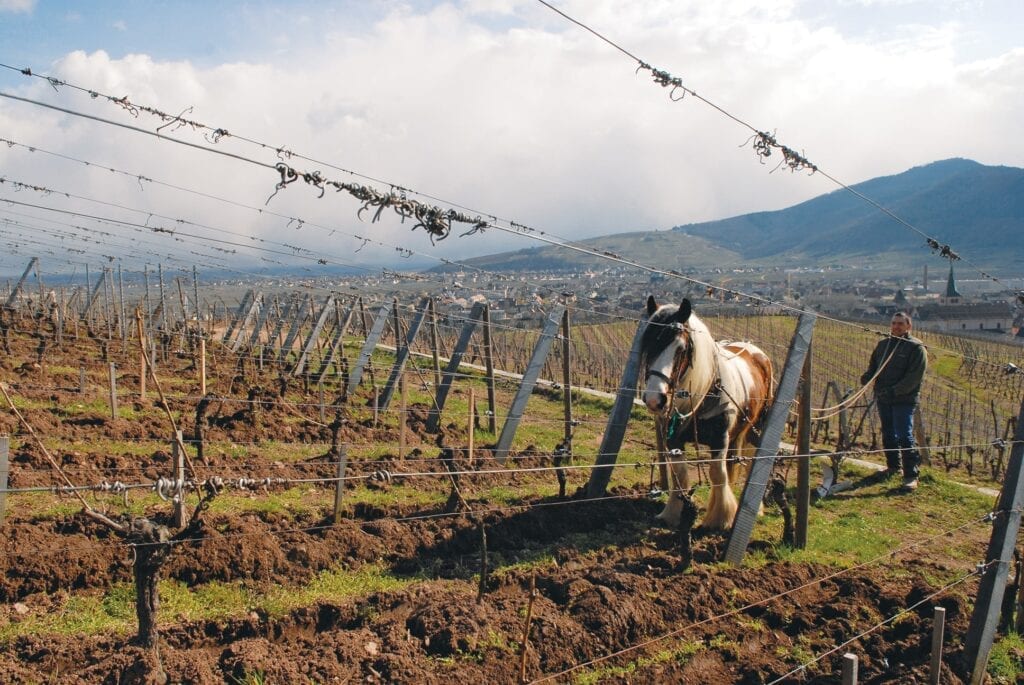
4. What is an upcoming trend you see in wine?
Consumers are more and more receptive to environmentally friendly wine production but also to any sustainable action (clean energy, social involvement, etc.). So organic production is almost the norm today.
There is obviously a strong movement towards natural wines, but I can see it will stay limited to a specific niche part of wine production.
When a vinification technique gives the character to a wine, it might be very interesting, but it is replicable around the world and the character of the place tends to disappear. Eventually, most winegrowers want to produce a wine that is unique to their place, so will choose a process that lets the area speak and not be dominated by a specific process.
I also obviously see in our region a very strong and durable trend towards drier elegant wines, and for that, Riesling is king !
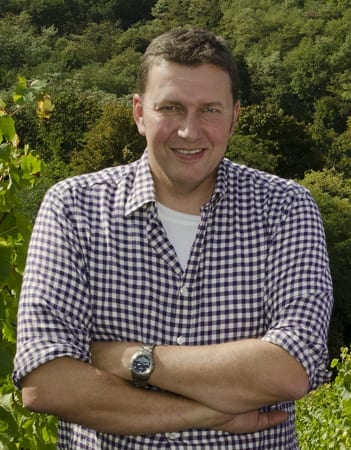
Olivier Humbrecht
Owner and General Manager
Domaine Zind-Humbrecht
"...See the hard part of being a winegrower, but also the satisfaction to see the final product."
5. What is the best piece of advice someone has given to you?
I received a lot of great advice in life, and most of it from my father! But also teachers, searchers, other winegrowers… without forgetting my wife. I was also told lots of stupidities and presented many bad ideas over the years!
Eventually, the best advice I got from my father was: “If you’re not sure, just experiment, compare, see the result and choose yourself.” This is how we made some of our most important decisions in the vineyards and cellar: canopy management, bio-dynamic, temperature control, whole cluster pressing, duration of pressing, elevage on full lees, etc.
6. What is one tip you have for someone who is interested in winemaking?
7. What do you drink at home?
Really a lot of different style of wines, but
surprisingly not so much our own wines. I taste them everyday at work, so I like to change…The last bottles I drank very recently at home were: Conte de Champagne Taittinger 2008 (a gift from my son in law for Father’s Day), Pinot Blanc 1975, Coulée de Serrant 2007 (Virginie Joly), Clos Jebsal 1996, Eolithe (red) Chateau de Fosse-Sèche 2017 (Saumur, Guillaume Pire), Domaine de l’Horizon 2018 red (Thomas Teiber in Calces, Roussillon), Chateau Gombaude-Guillot Pomerol 1990 (Olivier Techer), Nuit-Saint-Georges 1er Cru 2015 Domaine Conte Liger-Belair…
And I am celebrating every goal from the French team in the Euro Football competition with a glass of Highland Park 1959…
Nominate someone for Wine Pro Wednesday:
